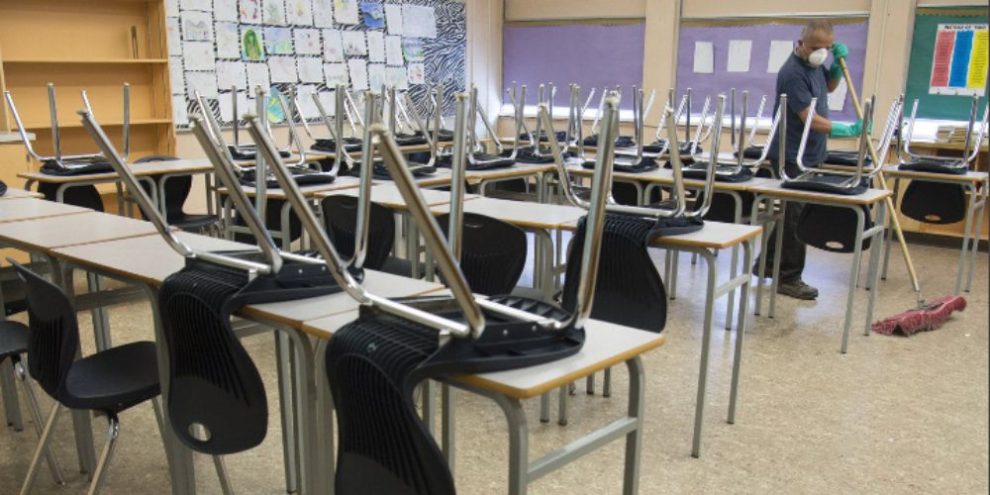
By Allison Jones in Toronto
About 55,000 education workers in Ontario, such as custodians, early childhood educators and administration staff, will be in a legal strike position as of Nov. 3, the Canadian Union of Public Employees said Monday.
CUPE has not indicated if education workers would engage in a full strike – which could potentially close schools – or start with a work-to-rule campaign, or take some other course of action at that point.
There are still talks in progress with the assistance of a mediator, with three days of bargaining scheduled between Monday and Wednesday. During the last round of contract negotiations, in 2019, CUPE and the government reached a last-minute deal the day before workers had been set to go on strike.
On Monday, the union announced on its Ontario School Board Council of Unions account on Twitter that a conciliator had issued what's known as a "no board report," which CUPE had requested on Oct. 7, saying the talks were at an impasse.
"It is important that as workers, we use this time to build power amongst ourselves, students, families and our communities," the union wrote in the update, encouraging its members to complete forms for strike pay.
The report sets a 17-day countdown toward the union being in a legal strike position, though CUPE is still required to give five days' notice of any job action.
CUPE is looking for annual salary increases of 11.7 per cent and the government in response has offered raises of two per cent a year for workers making less than $40,000 and 1.25 per cent for all other workers.
Education workers have made several other proposals, including overtime at two times the regular pay rate, 30 minutes of paid prep time per day for educational assistants and ECEs, an increase in benefits and professional development for all workers.
Laura Walton, president of CUPE’s Ontario School Boards Council of Unions, said their proposals are about "student success and good jobs."
"We started mediation this morning and we still want to reach a negotiated agreement that will guarantee service improvements for students, help solve school boards’ problems hiring and keeping qualified employees, and secure a significant wage increase for the lowest-paid frontline education workers that’s long overdue," she said in a written statement.
The four major teachers' unions are also at various points in the bargaining process with the government, after contracts expired on Aug. 31.
This report by The Canadian Press was first published Oct. 17, 2022.






